How Food For The Poor Transforms Lives by Equipping Women With the Tools for Sustainable Success
In the heart of Latin America and the Caribbean, the challenges of poverty often fall heaviest on women. Yet, when equipped with the right tools and opportunities, women can become powerful agents of change in their communities. Food For The Poor recognizes this potential and has dedicated itself to empowering women through training, education, and access to resources. These efforts not only transform individual lives but also uplift entire communities.
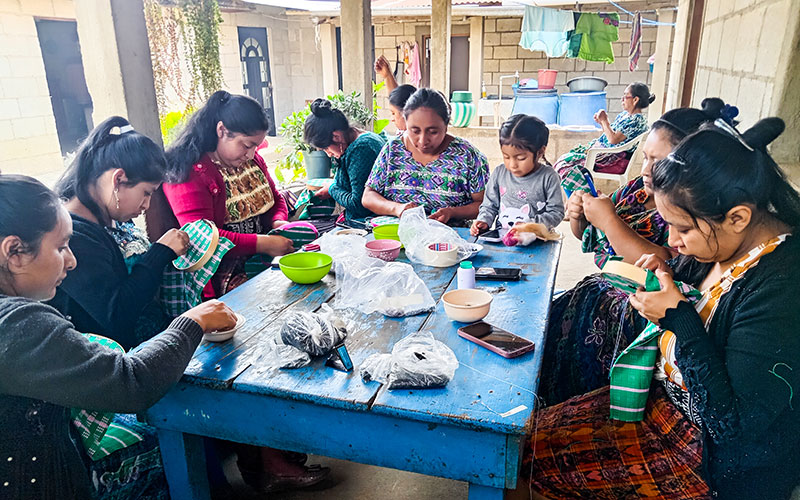
This blog will help you discover how economic empowerment programs are making a profound difference. You’ll learn how training, financial literacy, and resource access are helping women build sustainable livelihoods, support their families, and strengthen their communities.
Plus, don’t forget to check back on Food For The Poor’s website on March 7 for International Women’s Day to see how we’re celebrating the achievements of women and highlighting the ongoing work to empower them.
Putting the Power in Economic Empowerment
At Food For The Poor, economic empowerment means providing individuals with the skills, resources, and opportunities to sustain themselves and contribute to their communities. For women in underserved areas, this can mean learning new trades, gaining financial literacy, or accessing markets for their goods.
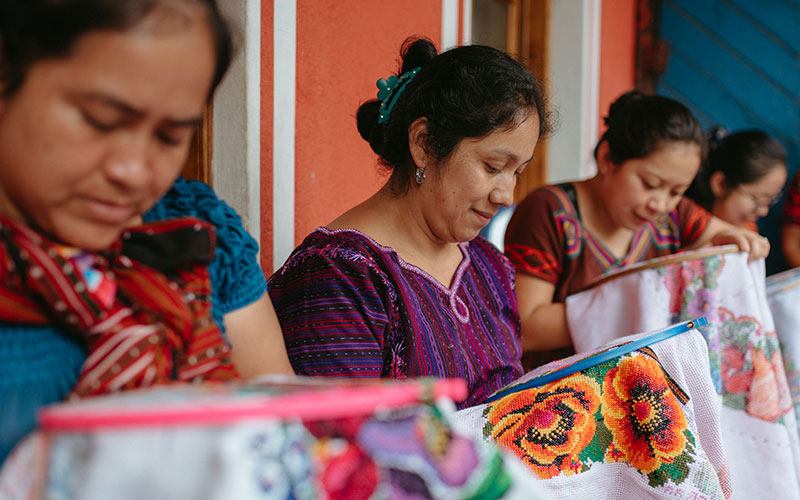
Many women in Latin America and the Caribbean work in informal sectors with low pay and limited job security. Programs that equip them with marketable skills and access to resources can help them transition into more sustainable and profitable livelihoods.
Investing in Transformation
Food For The Poor’s initiatives are rooted in practical, impactful strategies. Here are a few examples of how training and education lead to economic empowerment:
Nonfarm Income-Generating Activities
In rural Guatemala, Food For The Poor has partnered with local organizations to train women in artisanal crafts such as weaving and jewelry making. By providing access to markets, these women can sell their products internationally, earning a stable income to support their families.
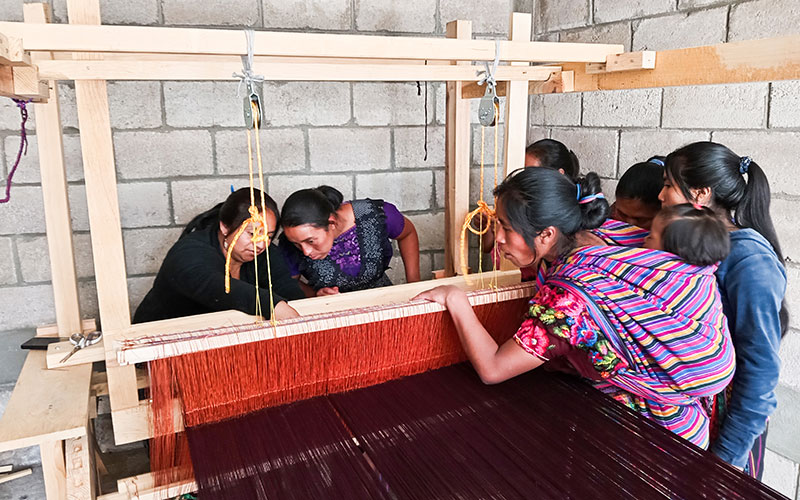
Reducing Dependency on Single-Source Income
Providing sewing machines comes with the opportunity for individuals to increase their employability and income-earning potential. It helps diversify the local economy by adding a new industry to the mix. Economic diversification makes communities more resilient to economic shocks and reduces dependency on a single source of income.
Agricultural Cooperatives
Food For The Poor supports smallholder farmers by forming cooperatives. These groups provide access to seeds, tools, and training in sustainable farming practices. Cooperative members can increase their crop yields and sell surplus produce at local markets.
Financial Literacy Programs
Food For The Poor facilitates workshops for women and men that teach budgeting, saving, and investing. These programs empower individuals to make informed financial decisions and plan for their futures.
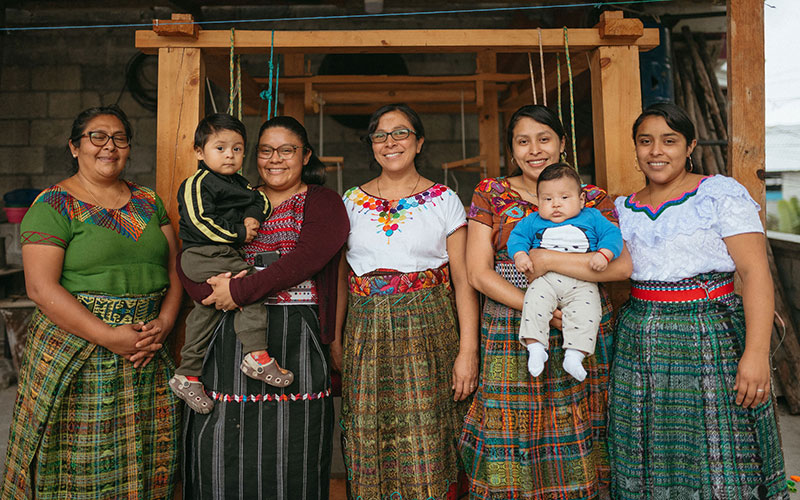
Why Training Matters
Training is a cornerstone of economic empowerment. By learning new skills, women can:
- Diversify Income Sources: Skills like sewing, cooking, or crafting open doors to new revenue streams.
- Build Confidence: Education instills a sense of self-worth and capability.
- Access Better Opportunities: Training often leads to higher-paying jobs or successful entrepreneurship.
Key Benefits of Economic Empowerment Programs
- Increased Household Income: Women’s earnings contribute directly to better nutrition, education, and health care for their families.
- Community Growth: Empowered women often invest in local businesses, creating jobs and boosting the local economy.
- Resilience Against Poverty: Skills and resources provide a safety net during economic downturns.
- Intergenerational Impact: Educated mothers are more likely to prioritize their children’s education, breaking the cycle of poverty.
Transformative Impact of Economic Empowerment Programs
Economic empowerment programs are a catalyst for profound and lasting change. These programs equip individuals, especially women, with the tools, skills, and resources needed to transform their lives and their communities.
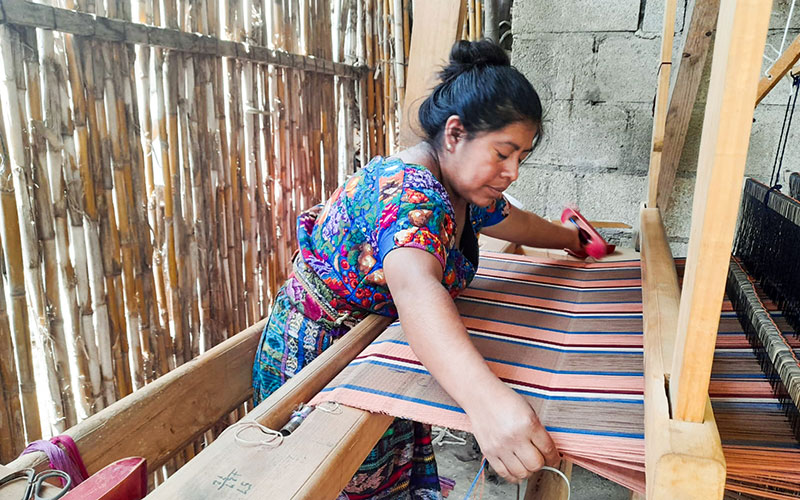
Let’s explore the key benefits of economic empowerment programs and how they can create a better future for everyone involved.
1. Increased Household Income: A Direct Path to Better Living Standards
When women participate in economic empowerment programs, their earnings become a lifeline for their families. These additional incomes often translate directly into better nutrition, improved access to education, and enhanced health care for their loved ones. For example, a mother who gains financial independence can afford nutritious meals, ensuring her children grow up healthy and strong. She can pay for school fees, uniforms, and books, giving her children a chance to pursue their dreams. Furthermore, access to health care means illnesses are treated promptly, reducing the risk of long-term complications. Economic empowerment can create a strong foundation for healthier, more educated, and resilient families.
2. Community Growth: Empowerment as an Economic Engine
Empowered women do more than uplift their families; they invest in their communities. With newfound financial resources, many women choose to start or expand local businesses. Their entrepreneurship creates jobs, stimulates economic activity, and strengthens the social fabric of their communities. For instance, a woman who opens a sewing business might employ other women, mentor young apprentices, and source materials locally, creating a positive economic cycle. Over time, these small businesses collectively boost the local economy, turning once-struggling communities into small but mighty neighborhoods of opportunity and growth.
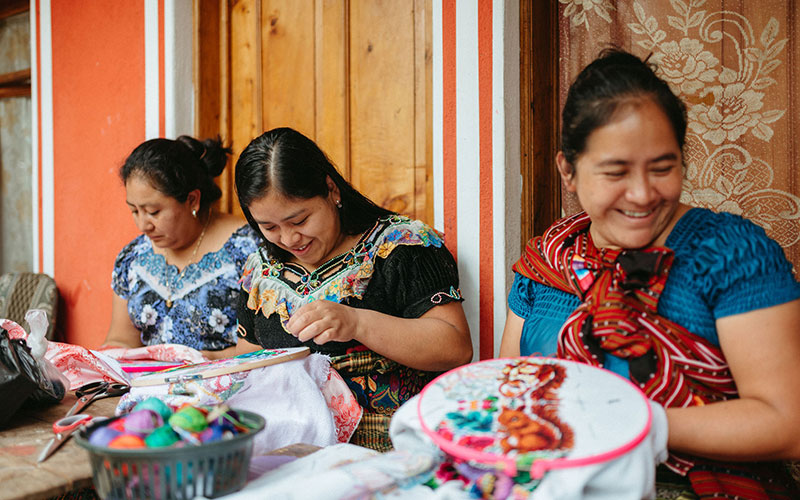
3. Resilience Against Poverty: Building a Safety Net
Economic empowerment programs provide participants with the skills and resources needed to weather economic downturns. Whether it’s learning a trade or gaining financial literacy, these tools serve as a safety net during challenging times. Consider a woman who learns agricultural techniques by participating in a Food For The Poor smallholder farmer program. During a poor harvest season, her knowledge of crop diversification or sustainable farming practices can mean the difference between scarcity and survival. By equipping individuals with the means to adapt and thrive, these programs help break the cycle of poverty and build a more resilient society.
4. Intergenerational Impact: Breaking the Cycle of Poverty
The benefits of economic empowerment extend beyond the immediate participants. Educated and economically empowered mothers are more likely to prioritize their children’s education. This focus on education creates opportunities to break the cycle of poverty for generations to come. A mother who values learning will ensure her children attend school, instilling in them the importance of knowledge and opportunity. These children grow up with better prospects, contributing to intergenerational impact.
Economic empowerment programs are a powerful force for change. By increasing household income, fostering community growth, building resilience against poverty, and creating intergenerational impact, these programs transform lives and communities. They are not just about financial gains; they are about unlocking potential, fostering dignity, and paving the way for a brighter future.
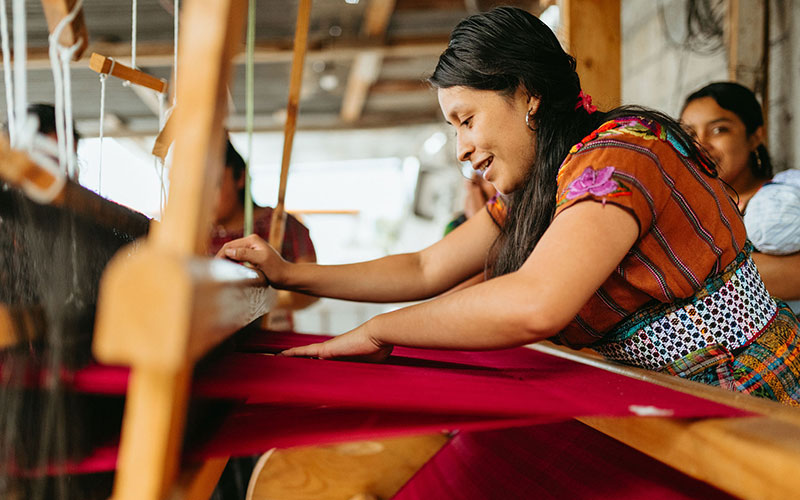
Be Part of the Solution
You can help transform lives by supporting Food For The Poor’s economic empowerment programs. Your donation provides women with the tools they need to build sustainable livelihoods, support their families, and strengthen their communities. Together, we will help women build a future where generations of women and girls will thrive.
Make a difference today by supporting our Empowering Women Through Sewing project by purchasing a beautifully crafted bag.
